QuickBooks Alternatives: Accounting Software for Freelancers
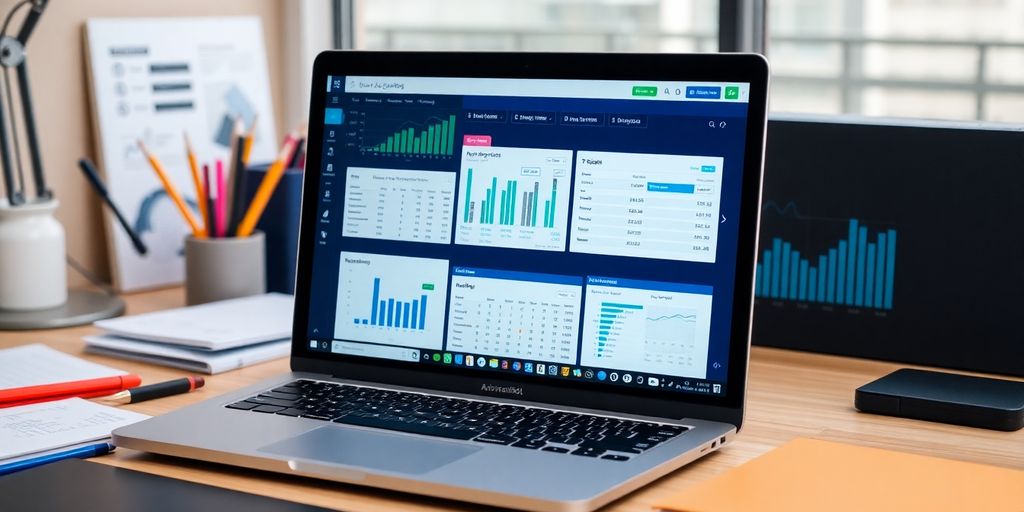
Freelancers often juggle many tasks, and managing finances shouldn’t add to the stress. While QuickBooks is a popular choice, it might not be the best fit for everyone. There are plenty of alternatives out there that can make accounting easier and more affordable. In this article, we’ll explore some great QuickBooks alternatives: accounting software for freelancers that can help keep your finances in check without breaking the bank.
Key Takeaways
- Evaluate your business needs before choosing software.
- Look for free options if you’re on a tight budget.
- Consider user-friendly interfaces for easier navigation.
- Check for mobile compatibility to manage finances on the go.
- Think about scalability for future business growth.
Evaluating QuickBooks Alternatives for Freelancers
As a freelancer, managing your finances efficiently is essential. QuickBooks is a popular choice, but it’s not always the best fit for everyone. There are many alternatives that might be more cost-effective, user-friendly, or tailored to your specific needs. Let’s explore what to consider when evaluating these options.
Key Features to Consider
When choosing accounting software, think about the features you actually need. Don’t get bogged down in bells and whistles if you’re just starting out. Here are some key features to consider:
- Invoicing: Can you easily create and send professional invoices?
- Expense Tracking: How simple is it to record and categorize your expenses?
- Reporting: Does the software provide the reports you need to understand your business performance?
- Bank Reconciliation: Can you connect your bank accounts for automatic transaction importing?
- Tax Preparation: Does it help with tax time, such as generating reports or estimating taxes owed?
Cost-Effectiveness
Cost is a major factor for freelancers. Many QuickBooks alternatives offer free plans or lower-priced options. Consider the long-term costs, including subscription fees, add-ons, and potential for growth. Some software might seem cheap initially but become expensive as your business expands. It’s important to find a balance between price and features. For microbusinesses seeking an affordable bookkeeping solution, there are options available.
User Experience and Support
A user-friendly interface can save you a lot of time and frustration. Look for software that’s easy to navigate and understand. Check out online reviews and see what other freelancers are saying about the user experience. Also, consider the availability and quality of customer support. If you run into problems, you’ll want to know that help is readily available. If you are looking for best free accounting software, there are options that are easy to set up and use.
Choosing the right accounting software is a personal decision. What works for one freelancer might not work for another. Take the time to evaluate your needs and try out a few different options before making a commitment.
Top Free Accounting Software Options

For freelancers watching their bottom line, free accounting software can be a game-changer. While QuickBooks dominates the market, several excellent free alternatives offer robust features without the hefty price tag. Let’s explore some of the best options available.
Wave Accounting
Wave Accounting is often touted as one of the best free options for freelancers and small business owners. Its user-friendly interface and comprehensive features make it a strong contender for those seeking a no-cost solution. Wave’s free plan includes income and expense tracking, invoicing, and basic reporting. It’s a solid choice for solopreneurs who need to manage their finances without the complexities of more advanced software. However, keep in mind that features like automatic bank transaction imports and adding multiple users require a paid upgrade. Also, Wave lacks direct integrations with POS systems, which might be a drawback for some businesses. If you are looking for free accounting software, Wave is a great place to start.
GNUCash
If you’re comfortable with a steeper learning curve and prefer open-source software, GNUCash is worth considering. It’s a powerful tool that offers a wide range of features, including double-entry accounting, budgeting, and financial reporting. GNUCash is highly customizable, allowing you to tailor it to your specific needs. The software has been around since 1997, with consistent updates and new features. It’s a great option if you want something open source. If you want to try it out, you can download GnuCash here.
Zoho Books Free Plan
Zoho Books offers a free plan that’s surprisingly robust, especially for small businesses. It includes invoicing, expense tracking, and basic reporting, similar to Wave. However, Zoho Books stands out with its ability to integrate with other Zoho apps, creating a seamless ecosystem for your business. The free plan supports a limited number of users, but it’s a great starting point for freelancers who anticipate needing more scalability in the future. Zoho Books could be a good choice if you are looking for a more scalable option with a free plan and more built-in app integrations. It provides all of the accounting basics such as receivables, income and expense tracking, financial reports, and payment management.
Choosing the right free accounting software depends on your specific needs and technical skills. Consider what features are most important to you and whether you’re comfortable with a more complex interface or prefer something more user-friendly. Don’t be afraid to try out a few different options before settling on the one that works best for your business.
Best Paid Alternatives to QuickBooks

While QuickBooks dominates the accounting software landscape, several paid alternatives offer unique advantages for freelancers. These options often provide specialized features, different pricing structures, or a more tailored user experience. Let’s explore some of the top contenders.
FreshBooks for Invoicing
FreshBooks excels in invoicing and time tracking, making it a strong choice for freelancers who bill clients regularly. Its intuitive interface simplifies the process of creating professional-looking invoices, sending payment reminders, and tracking project hours.
- Easy-to-use invoicing features.
- Automated payment reminders.
- Project time tracking.
FreshBooks is particularly well-suited for service-based freelancers who need to manage invoices and track time efficiently. Its focus on these core functions makes it a streamlined and effective solution.
Xero for Comprehensive Features
If you’re seeking a more robust accounting solution with a wider range of features, Xero is a great alternative. It offers comprehensive tools for managing invoices, bank reconciliation, inventory, and reporting. Xero’s scalability makes it suitable for freelancers who anticipate business growth. It is often considered the best QuickBooks alternative.
- Extensive reporting capabilities.
- Bank reconciliation automation.
- Inventory management (if applicable).
Bench for Automated Accounting
Bench takes a different approach by combining software with a team of professional bookkeepers. This service automates many accounting tasks, such as transaction categorization and financial statement preparation. It’s a good option for freelancers who want to offload their bookkeeping responsibilities and focus on other aspects of their business.
- Dedicated bookkeeping team.
- Automated transaction categorization.
- Monthly financial statements.
Mobile-Friendly Accounting Solutions
For freelancers constantly on the move, having accounting software that works well on mobile devices is a game-changer. It’s not just about checking balances; it’s about managing your entire business from your phone or tablet. Let’s explore some top contenders in this space.
Zoho Books for On-the-Go Management
Zoho Books really shines when it comes to mobile accessibility. Its mobile app is fully functional, allowing you to send invoices, receive payments, and track billable hours from anywhere. It also integrates seamlessly with other Zoho products, which can be a huge plus if you’re already using their suite of tools. Zoho Books offers more features than some competitors, like QuickBooks Self-Employed, such as time and project tracking.
QuickBooks Online Mobile App
QuickBooks Online also has a solid mobile app. It lets you manage invoices, track expenses, and view reports on the go. It’s a convenient option if you’re already using QuickBooks Online for your desktop accounting needs. The mobile app syncs automatically with the desktop version, so your data is always up-to-date.
FreshBooks Mobile Features
FreshBooks is known for its user-friendly interface, and that extends to its mobile app. You can easily create and send invoices, track time, and manage expenses from your phone.
The FreshBooks mobile app is designed with simplicity in mind, making it easy for freelancers to stay on top of their finances even when they’re away from their desks. It’s a great option if you value ease of use and a clean, intuitive design.
Here’s a quick comparison of mobile features:
- Zoho Books: Comprehensive features, strong integration with other Zoho apps.
- QuickBooks Online: Good all-around functionality, seamless syncing with desktop version.
- FreshBooks for invoicing: User-friendly, simple to use for basic accounting tasks.
Simplified Accounting for Solopreneurs
For solopreneurs, accounting needs to be straightforward and efficient. You don’t need all the bells and whistles of a large business accounting system. Simplicity is key. Many options are available that cater specifically to the needs of a one-person operation. Let’s explore some of these.
You Need a Budget for Budgeting
While not strictly accounting software, You Need a Budget (YNAB) is fantastic for managing your finances and, most importantly, your budget. It helps you understand where your money is going, which is the first step in effective financial management. It operates on the principle of giving every dollar a job, which can be incredibly helpful for solopreneurs who need to keep a close eye on their cash flow. It’s more about personal finance, but it’s a great tool to use in conjunction with accounting software.
OneUp for Small Retailers
If you’re a solopreneur running a small retail business, OneUp might be a good fit. It combines accounting with CRM and inventory management, which can be a lifesaver if you’re selling physical products. It’s designed to help you manage your sales, track your inventory, and keep your books in order, all in one place. It’s more robust than some of the simpler options, but it can be worth it if you need those extra features. It’s worth noting that QuickBooks Solopreneur is also a good option.
Tiller for Spreadsheet Automation
If you love spreadsheets but hate manual data entry, Tiller could be your dream come true. It automatically pulls your financial data into Google Sheets or Excel, allowing you to create custom reports and analyses. It gives you the flexibility of a spreadsheet with the automation of accounting software. It’s a great option if you want to stay in control of your data and have the freedom to customize your reports. It’s not a full-fledged accounting solution, but it can be a powerful tool for solopreneurs who are comfortable with spreadsheets.
For solopreneurs, the goal is to find a system that’s easy to use, affordable, and meets your specific needs. Don’t get bogged down in features you don’t need. Focus on the essentials: tracking income and expenses, sending invoices, and managing your budget.
Choosing the Right Software for Your Needs
Choosing the right accounting software can feel overwhelming, but it doesn’t have to be. It’s about finding the best fit for your specific business needs. Let’s break down the key considerations to help you make an informed decision.
Assessing Your Business Size
First, think about where your business is right now. Are you a solo freelancer just starting out, or are you further along? The size and stage of your business significantly impact the features you’ll need. A larger business will likely need more robust features than a smaller one. For example, a freelancer might be fine with basic invoicing, while a growing business might need advanced inventory management. Consider your current transaction volume too. If you have a high volume of transactions, you’ll want software that can handle it efficiently. If you’re a small retailer, you might need something like OneUp for small retailers.
Identifying Essential Features
Make a list of the features that are non-negotiable for your business. What are the bookkeeping tasks you want to automate? Do you need to track expenses by project? Do you need to send automatic payment reminders? Think about your biggest pain points and find software that addresses them. It’s easy to get caught up in all the bells and whistles, but focus on what you actually need. Don’t pay for features you won’t use. If mobile access is important, consider Zoho Books for on-the-go management.
Here’s a simple way to prioritize features:
- Must-Have: Essential for day-to-day operations. Without these, the software is useless.
- Nice-to-Have: Would make things easier, but not critical.
- Future Considerations: Might be useful as your business grows.
Understanding Your Budget
Accounting software comes in a wide range of prices, from free to hundreds of dollars per month. Determine how much you’re willing to spend. Remember, the cheapest option isn’t always the best. Consider the long-term value and potential time savings. Free software like Wave Accounting might be a good starting point, but it may not scale with your business. Also, factor in any potential costs for training or support. Some software offers free trials, so take advantage of those to test out different options before committing.
It’s better to invest in software that meets your needs and grows with you than to settle for something that’s cheap but ultimately inadequate. Think of it as an investment in your business’s future, not just an expense. Consider the long-term benefits of choosing the right software.
Transitioning from Freelance to Small Business
When to Upgrade Your Software
Knowing when to move beyond basic freelance accounting tools is important as your business evolves. Often, the trigger is complexity. Are you managing employees, dealing with significant inventory, or facing intricate tax situations? These are strong indicators. Don’t wait until your current system buckles under the pressure. Staying ahead of the curve prevents data chaos and ensures smoother operations.
Benefits of Double-Entry Accounting
Freelance accounting often gets by with single-entry systems, but small businesses usually need more. Double-entry accounting provides a more complete financial picture. It tracks where your money comes from and where it goes, offering better insights into profitability and financial health. This is crucial for making informed decisions and securing funding.
Scalability Considerations
Think about the future. Will your chosen accounting software grow with you? Consider these points:
- User Limits: Can you add more users as your team expands?
- Feature Expansion: Does the software offer modules for inventory management, payroll, or advanced reporting?
- Integration: Can it connect with other tools you might need, like CRM or e-commerce platforms?
Choosing software with scalability in mind saves you the headache of switching systems later. It’s an investment in your business’s long-term success.
Wrapping It Up
Choosing the right accounting software can make a big difference for freelancers. While QuickBooks is popular, it’s not the only option out there. You’ve got choices like Wave, FreshBooks, and Xero that might fit your needs better, especially if you’re looking for something simpler or more affordable. Each of these alternatives has its own strengths, whether it’s ease of use, cost, or specific features. Take some time to think about what you really need for your business. The right tool can save you time and help you keep your finances in check, so don’t rush into a decision. Explore your options and find the one that feels right for you.
Frequently Asked Questions
What should I look for in an alternative to QuickBooks?
When searching for a QuickBooks alternative, consider features like invoicing, expense tracking, and ease of use. You want software that meets your specific needs as a freelancer.
Are there free accounting software options available?
Yes, there are free options like Wave Accounting that can help you manage your finances without spending money. However, some features may require a paid plan.
Do I really need accounting software as a freelancer?
Using accounting software can help you keep track of your income and expenses, making it easier to manage your finances and prepare for taxes.
Can I use QuickBooks Self-Employed for my small business?
QuickBooks Self-Employed is mainly for freelancers. If your business grows, you might need more advanced features that other software offers.
What are the benefits of switching to a paid accounting software?
Paid software often provides more features, better customer support, and more customization options, which can help you manage your business more effectively.
How do I decide which accounting software is right for me?
Think about your business size, the features you need, and what you can afford. This will help you choose the best software for your situation.
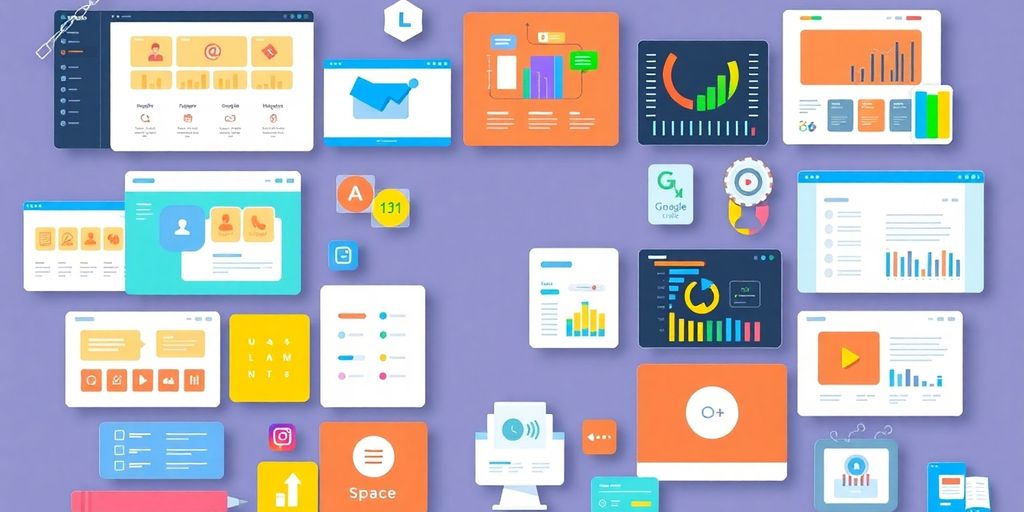

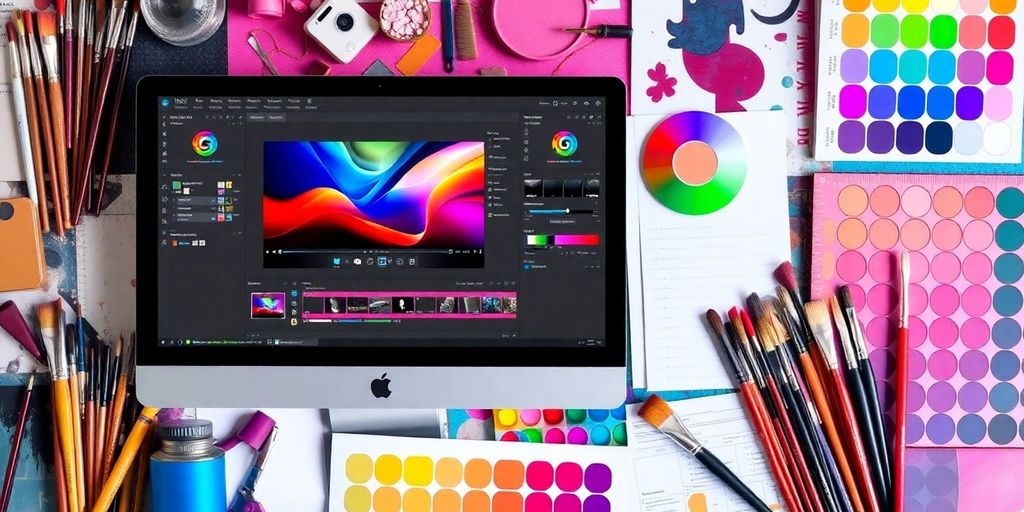
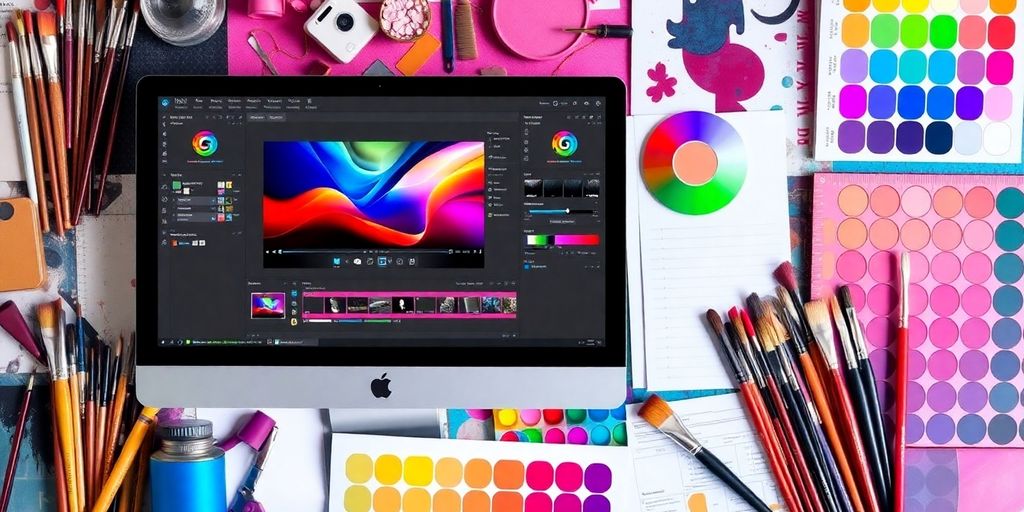
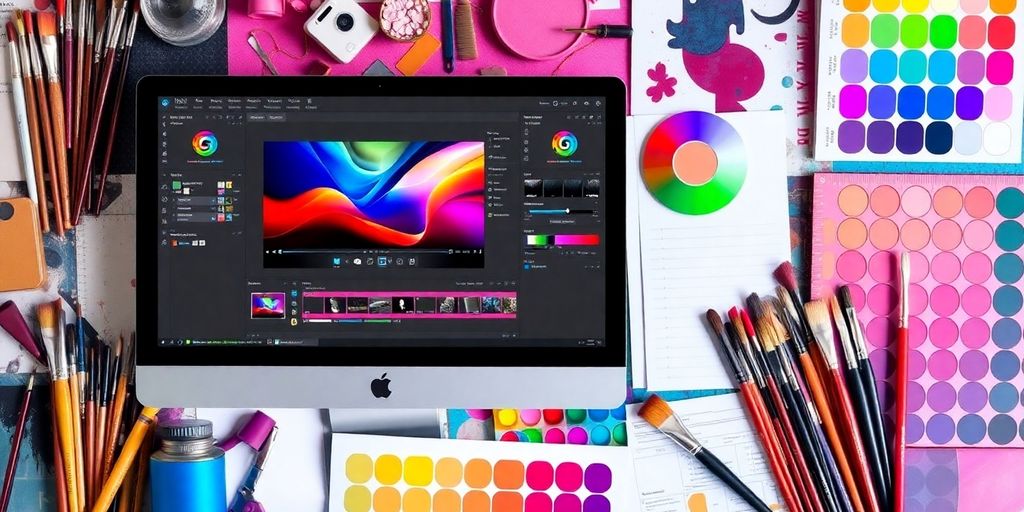

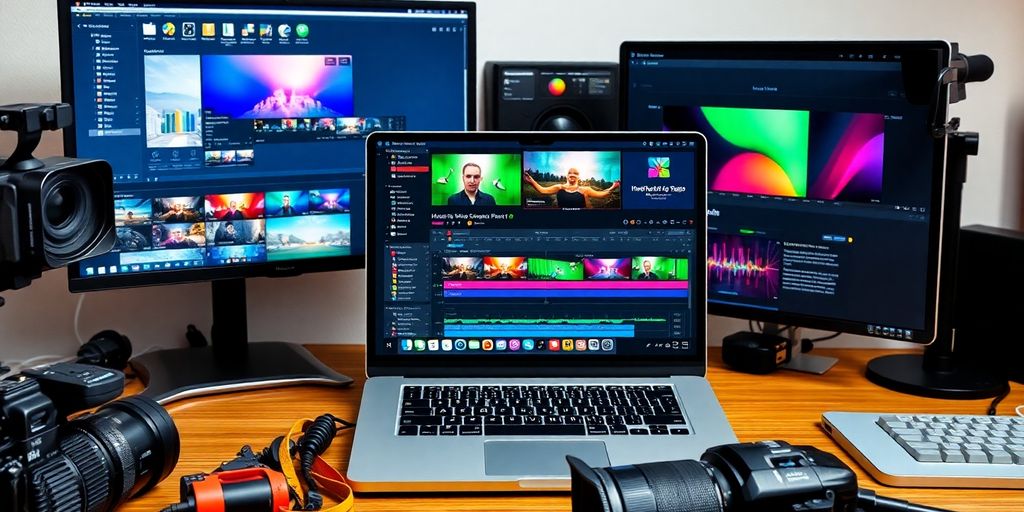
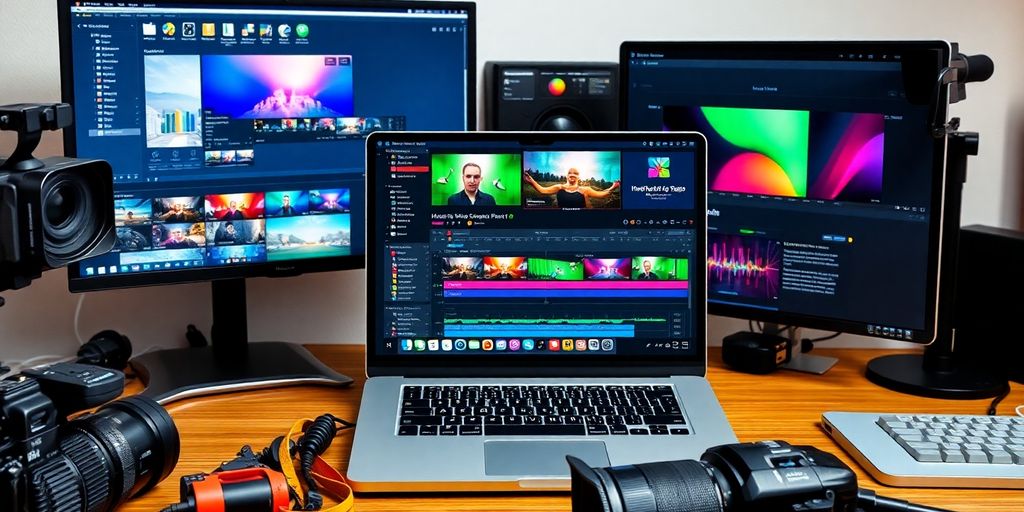
Responses